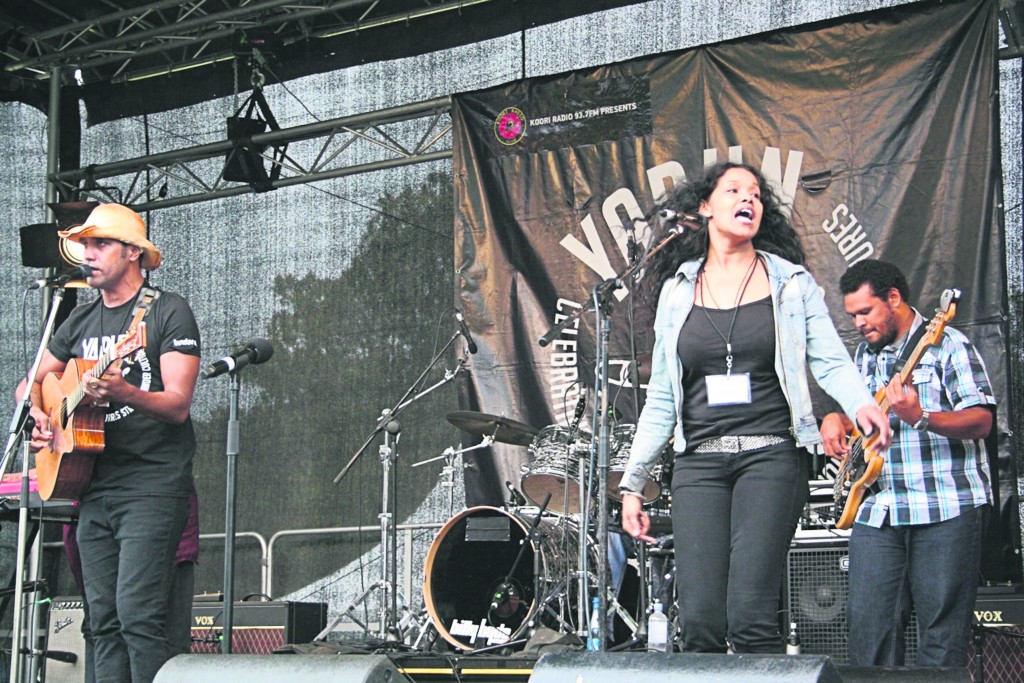The Yabun Stage is a showcase of some of the best Indigenous music talent in the country. Past performers include Archie Roach, Dan Sultan and Jessica Mauboy. This year, festival sponsor Koori Radio (93.7FM) broadcast live performances by the Green Hand Band, Elaine Crombie, Troy, Trevelyn and Dean Brady, Benny Walker, Mau Power, Jimblah and Stephen Pigram.
Koori Radio DJs Tjarami and Emily presented the final episode (for the time being at least) of the long-running “Our Yura” music program. During the day (between 10am and 6pm) guests dropped by their mobile studio in the park for interviews.
This year a dance program brought dancers from across the country to the Corroboree Ground, performing graceful moves that have been practised for centuries. “The rain won’t dampen our mood,” said excited spectator Luke Currie-Richardson (a member of the Bangarra Dance Company).
The performances drew enthusiastic crowds. Friends Bob and Glen from Mount Druitt and Newcastle respectively were impressed by “the energy and poetry” of the dancers, including the Djaadjawan, Gomeroi Mirri and Buuja Buuja Butterfly Dance groups, the Black Cockatoo Dance Company, the NSW Public Schools Aboriginal Dance Company and the Koomurri Dancers.
The Speak Out and Kulture tents featured some of Australia’s leading artists, authors and thinkers, including Frank and Renee of the Indij Hip Hop Show, writers Cathy Craigie, Minaji Mumbulla, Nardi Simpson and Robyn Ridgeway, Roy Ah-See of the NSW Aboriginal Land Council, and Warren Mundine (chairperson of the federal government’s Indigenous Advisory Council) who delivered the Kevin Cook Lecture.
At the Jarjums Tent, popular children’s author David Hardy’s illustration workshops were a hit with the kids.
Community and market stallholders braved the wet weather and enjoyed the interactions with people of all ages and cultural backgrounds. Stalls offered delicious food, unique gifts, and information on sporting activities, health and social services.
One day Australia will be a republic, with a flag and Constitution to symbolise our independence and maturity. It’s just a matter of time. By then our truth and reconciliation movements will have achieved what most of us deeply desire – recognition and justice for Indigenous peoples as a proper foundation for the future. Our national holiday may not always be celebrated on January 26. We’ll appreciate all the more, however, what Yabun has symbolised. And always will.





